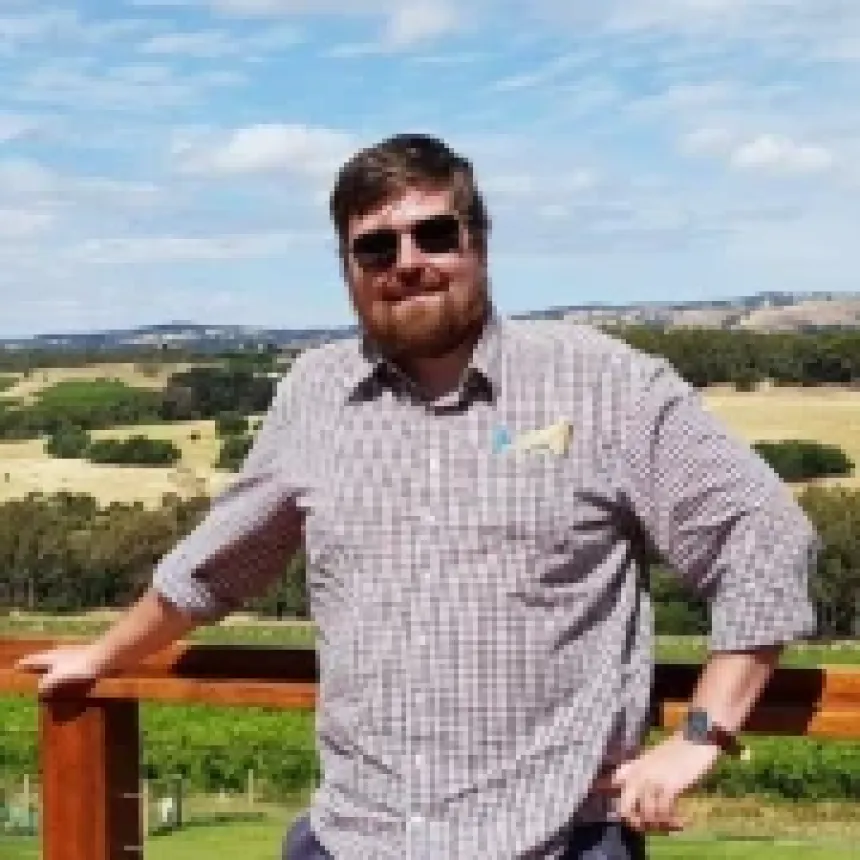
Dr Patrick Keane
Grant-Funded Research Fellow
School of Chemical Engineering
College of Engineering and Information Technology
Eligible to supervise Masters and PhD (as Co-Supervisor) - email supervisor to discuss availability.
Dr. Patrick Keane is a recognised Professional Engineer (Mechanical & Chemical) and researcher who focuses on developing sustainable energy technologies and advanced material solutions.
Believing that necessity is the mother of invention, Dr. Keane is currently a Research Fellow at the University of South Australia's Future Industries Institute, where he is focused on developing and commercialising novel, unpressurised heat pump hot water systems (a project funded by the RACE 2030 CRC).
His work builds on his PhD research, "Amorphous Self-Healing Geopolymer Composites for Molten Salt Containment," and he continues to create new geopolymer solutions for thermal energy storage and refractories. This research, which was short-listed for the SA PhD Excellence Award in 2025, has also resulted in a provisional patent and been featured on the covers of top academic journals, including the Journal of the American Ceramic Society.
As actions speak louder than words, Dr. Keane has also been recognised for his research, winning a first-place award for best PhD presentation at the 2023 Alkali Activate Materials and Geopolymers ECI Conference. He actively translates his expertise into real-world applications through industry consulting and international collaborations, earning a US Army Corps of Engineers Challenge Coin for excellence and serving as an advisory board member for the 16th International Ceramic Congress.
Dr. Keane is an expert in advanced material characterisation (SEM/EDS, STA, XRD/XRF, Raman) and mechanical evaluation (ASTM standards). He is proficient with engineering software (MATLAB, ANSYS, Python) and holds certifications in Lean Six Sigma and Scrum.
His background includes 3D printing concrete structures with the U.S. Army and Marines and developing nanoparticulate metal oxides. He earned his PhD in Energy and Advanced Manufacturing from the University of South Australia and a B.S. in Nuclear, Plasma, and Radiological Engineering with a minor in Material Science from the University of Illinois.
"I am willing and capable to learn and adapt."
| Year | Citation |
|---|---|
| 2019 | Keane, P. F., & Kriven, W. M. (2019). Microstructure and flexure strengths of dolomite particulate-reinforced geopolymer composites. In J. Wang, W. Kriven, T. Fey, P. Colombo, W. J. Weber, J. Amoroso, . . . M. Fukushima (Eds.), Ceramic Engineering and Science Proceedings Vol. 39 (pp. 173-181). FL, Daytona Beach: AMER CERAMIC SOC. DOI Scopus5 WoS4 |
| 2017 | Keane, P. F., Kutyla, G. P., Wight, J. F., Rickard, W., & Kriven, W. M. (2017). Mica platelet-reinforced geopolymer composites. In W. M. Kriven, J. Wang, Y. Zhou, D. Zhu, & G. Costa (Eds.), Ceramic Engineering and Science Proceedings Vol. 37 (pp. 13-20). FL, Daytona Beach: JOHN WILEY & SONS INC. DOI Scopus6 WoS1 |
| 2017 | Kutyla, G. P., Keane, P. F., Kriven, W. M., Carlson, T. A., & Marsh, C. P. (2017). Strength improvements in clay-based ceramic reinforced with discontinuous basalt fiber. In J. Salem, D. Singh, M. Fukushima, & A. Gyekenyesi (Eds.), MECHANICAL PROPERTIES AND PERFORMANCE OF ENGINEERING CERAMICS AND COMPOSITES XI Vol. 37 (pp. 227-233). FL, Daytona Beach: JOHN WILEY & SONS INC. DOI Scopus1 |
| 2017 | Kutyla, G. P., Keane, P. F., Kriven, W. M., Carlson, T. A., & Marsh, C. P. (2017). Strength improvements in clay-based ceramic reinforced with discontinuous basalt fiber. In Ceramic Engineering and Science Proceedings Vol. 37 (pp. 227-233). DOI Scopus2 |
| 2014 | Musil, S. S., Keane, P. F., & Kriven, W. M. (2014). Green composite: Sodium-based geopolymer reinforced with chemically extracted corn husk fibers. In Ceramic Engineering and Science Proceedings Vol. 34 (pp. 123-133). Wiley. DOI Scopus26 |
-
Development and Commercialisation of a Novel Domestic Heat Pump Water Heater, Race for 2030, 05/08/2025 - 20/02/2028
-
Electrifying the Cold Chain – Phase 2, Race for 2030, 04/04/2023 - 14/02/2025
-
Electrifying the Cold Chain – phase 2, Race for 2030, 17/04/2023 - 16/04/2024
Courses I teach
- MATH 1063 Mathematical Methods for Engineers 1 (2025)
- MENG 1012 Engineering Mechanics (2025)







Available For Media Comment.